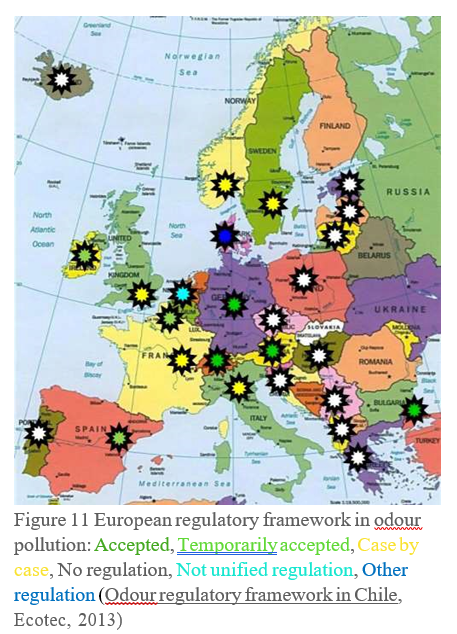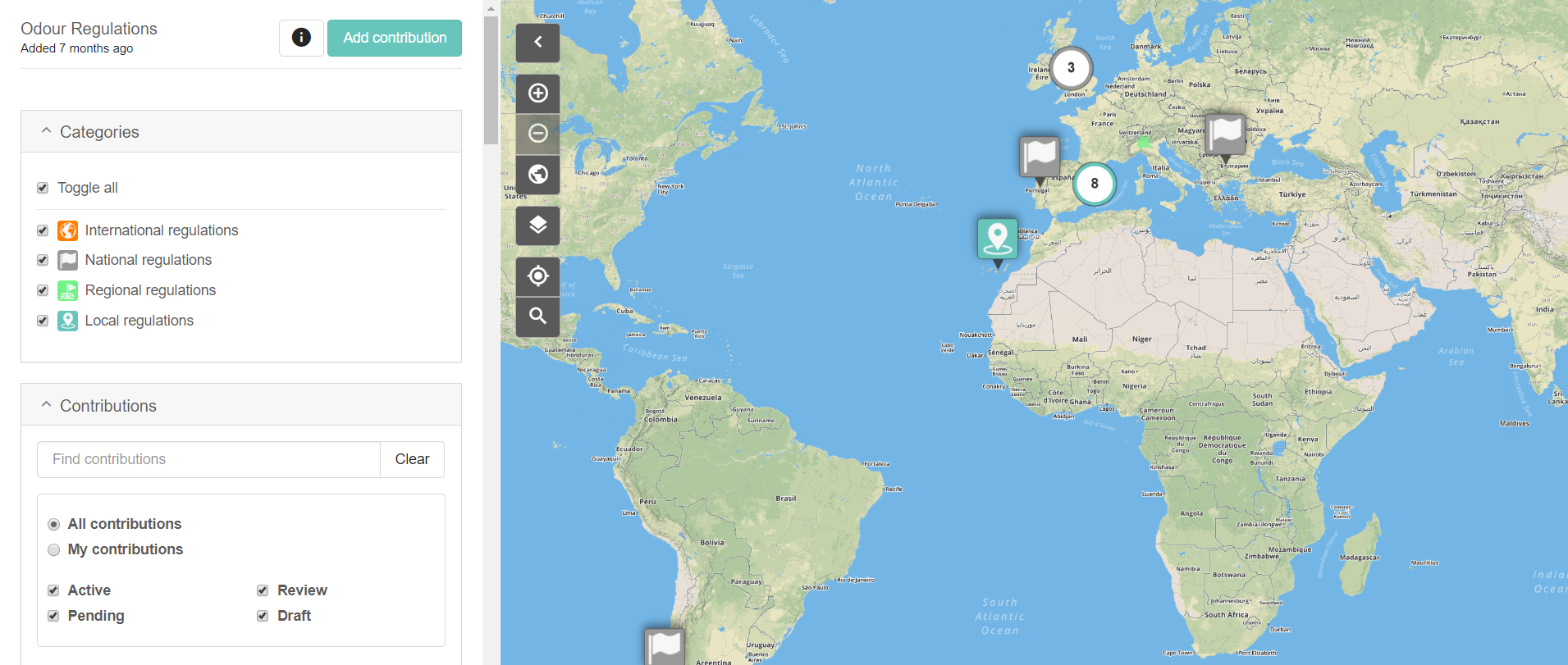Regulating odour pollution is not straight forward - one of the reasons is the complexity of reliably measuring odour levels. In contrast to other air pollutants, odorants can be difficult to detect as they are usually present in the air in very low concentrations. Even if every odorant could be detected, this would not tell us the whole story, as some odorants are perceived as more pungent or unpleasant than others. Therefore, in the case of odour regulation, sensorial measures are required to find out the odour strength perceived by individuals rather than
Despite this, a few countries have implemented regulations to tackle odour impact meaning free release of odour is no longer permitted, for example for industrial activities in Germany, the Netherlands, Italy and France. However, this has not led to the drawing up of a clear, Europe-wide framework legislation on odour impact in the way it exists for example for noise. The Directive 2002/49/EC relating to the assessment and management of environmental noise requires Member States to prepare and publish, every 5 years, noise maps and noise management action plans.
There is no European Environmental Directive for odour levels in ambient air. This is a serious issue that affects not only the European Citizens who have to deal with odour annoyance in their environment but also the European Industries, who need a clear framework to develop and manage their activities.
In March 2017, academics from Poland sent a petition to the European Parliament, signed by a wide group of odour experts from across Europe. A couple of years later the Commission replied that they do "not intend to propose any additional specific requirements regulating odour nuisances"
Unfortunately, odours in Europe continue to be outside of the planning procedures except in some countries.
There is no European Environmental Directive for odour levels in ambient air. This is a serious issue that affects not only the European Citizens who have to deal with odour annoyance in their environment but also the European Industries, who need a clear framework to develop and manage their activities.
In March 2017, academics from Poland sent a petition to the European Parliament, signed by a wide group of odour experts from across Europe. A couple of years later the Commission replied that they do "not intend to propose any additional specific requirements regulating odour nuisances"
Unfortunately, odours in Europe continue to be outside of the planning procedures except in some countries.


